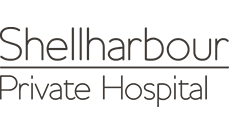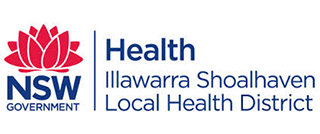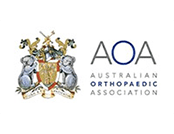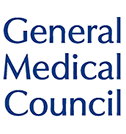FAQs
Airport Security
Yes, your new joint CAN set off the alarms as you pass through Airport Security. However, thousands of people have joint replacements so you can usually just inform the security guard that you have a knee or hip replacement. They may wish to see your scar for proof. I can provide a letter of confirmation but there is no guarantee it will be accepted as proof.
Are there any Complications of Surgery?
Any operation, large or small has a level of risk and complications. In todays world of surgery, these risks are very low, are understood and measures taken to reduce them to a minimum. We do everything we can to mitigate these risks and have been successful in doing this with constantly improved surgical techniques, anaesthetic techniques, medications etc. Patients with certain medical problems may have a higher than normal risk, for example, patients with diabetes have a slightly higher risk of infection.
Before you agree to any operation, I will explain to you all the potential risks and complication of your surgery. However, most people do not need to worry about these, as they are rare.
Can I claim my Medicare rebate at my appointment?
Can I claim my Medicare rebate at my appointment?
We are integrated with Medicare and can have your refund paid directly into the account you have registered with Medicare.
Can I have both of my Hip or Knee Joints replaced at the same time?
I perform bilateral joint replacements for knees and hips, using the Direct Anterior Approach.
If both of your hip or knee joints are equally painful and troublesome then replacing both at the same time can have benefits such as reducing the number of Anaesthetic procedures required, reducing the number of hospital admissions and reducing the overall rehabilitation time. You will potentially lose less time from your work/life overall and this is an attractive proposition to many patients.
However, it is not right for everyone, and not everyone is fit enough to undertake the extended Anaesthetic and surgical time that is required to replace both joints at once. Some of the risks of having bilateral hip or knee replacement surgery have been shown to slightly higher, but still low. If you think this is something you would like to consider, I will discuss this with you in your consultation.
Can I wear high heels after surgery?
Can I wear high heels after surgery?
As long as you are stable, confident and comfortable in the shoes of your choice then you can wear them. Just be careful that you are stable!
Computer Navigation
I use Computer Navigation for both Hip and Knee Joint Replacement Surgery.
Accurate positioning of the implants used in joint replacement surgery improves the likelihood of a successful long term outcome. Computer Navigation assists the surgeon with the accuracy of this implant positioning. The bones and damaged joint surfaces are first ‘registered’ in 3 dimensions using special cameras and computer software. In total knee replacement surgery, the jigs used to guide the bony cuts are then positioned using the data from the navigations system Once the position of the the jigs are established and they have been secured to the bone, the bony cuts are made and the implants applied. In hip replacement surgery, computer navigation helps me to accurately assess the position of the Cup in the socket and the stem in the femur to ensure the total hip replacement will provide an excellent long term function.
Costs of Surgery
All orthopaedic surgeries are covered by Medicare item numbers. These numbers have an associated rebate. The government determines these rebates and the private health insurance companies supplement these rebates. The amount of rebate varies with each insurance company.
There are several costs to surgery. Most patients believe the bills they are paying are for the surgeons. In reality there are multiple providers who are sending out bills to the patients and the health insurance company:
Surgeon’s Fee
This is the fee payable to the surgeon who performs your operation. This may vary. A newly qualified, generalist surgeon may charge no gap, whereas an experienced sub-specialist surgeon may charge a known gap, or a set fee, usually related to the AMA rate. This is the fee at which the Australian Medical Association believe a surgeon should be reimbursed for a specific operation. The Medicare rebates and Insurance Fund rebates often fall way short of the AMA rate and haven’t changed much in the last 20 years! I try to reduce the out-of-pocket expenses of my patients to a minimum, but as an experienced, sub-specialist hip and knee surgeon I set my fee at the relevant level.
Assistant’s Fee
Most orthopaedic operations require an assistant. It is commonly set at 20% of the surgeon’s fee. The assistant fee may include a gap.
Anaesthetist’s Fee
Again, this may attract no gap, a known gap or be a set fee. This is dependent upon your personal circumstances, past medical history and the experience of the anaesthetist.
I and my team will explain the fees to you at the time of booking of your surgery.
Hospital Fees
Theatre usage and Bed Fees
These are usually covered by your insurance cover but some levels of cover are different from others. Always confirm your level of cover with your insurer.
Pathology and Radiology Fees
These are performed before, during and after your surgery and may incur additional fees. Check with your insurer.
Implant Costs
These are the bits of metal and plastic that are used to replace joints, fix fractures etc. These are usually covered by your insurer, but please check.
Country and Rural Patients
I understand the difficulties and stresses that can be caused trying to access specialist surgical expertise and care if you are based in a country or regional area.
I provide a service in Milton, Nowra and Shellharbour to help those in the South Coast access sub-specialist care more easily. You can have an appointment and be followed up locally, or at the other extreme you can have your appointment in Milton, have your surgery in Sydney and your rehab in Nowra, or any combination that works for you. Some patients choose to come to Sydney for their surgery and it is possible for country or interstate patients having straightforward surgery to make just a single trip to Sydney.
Regardless of whether or not you have a referral, you can contact us and send your x-rays to us for an initial review. This does not replace a full consultation, but may help you. Please see our guidance on Telehealth.
Many issues we need to discuss with you can be done by phone, this can sometimes include your Pre-Admission clinic interview (which is normally done in-person at the hospital a week or two prior to your surgery). If facilities are available to you, tests and imaging can be done in your hometown and results sent to us. We can also often access test results and x-ray images online (depending on the facility you use) meaning it may not be necessary to send hard copy x-rays to us.
If you require straightforward uncomplicated surgery (e.g. primary hip or knee replacement or scope surgery) and are in reasonably good health, then under certain circumstances, your face-to-face consultation, admission and surgery can be done in a matter of days. I always need to know however that the decision has not been too fast for you. Remember, it is YOU who is making the decision to have surgery. I will advise you and facilitate the procedure at your pace.
If your surgery and health issues are more complex, we work with you to make arrangements that suit you best. In this case, much of the necessary paperwork, consent forms etc. can be done in advance of your arrival by email/mail – or on the day before your surgery.
For patients requiring a cardiac check prior to surgery we can coordinate appointments as needed. In Sydney, A/Prof Peter Vale (vascular physician and cardiologist) is based in the same consulting rooms as myself which can make life easier as well.
We are available for you over the phone at any time. Many of your medical issues and questions you have can be dealt with over the phone. Please call as often as you need to. My team will help you wherever possible.
Do I Need a Referral from a GP to see you?
Do I Need a Referral from a GP to see you?
No, you don’t. The difference is, if you come to see me directly, you are not entitled to claim an initial consultation Medicare rebate of $73.
Do you charge a Gap?
I may charge No Gap, a Known Gap or a Set Fee for performing your operation. There are many factors that will affect your potential out-of-pocket costs, including your insurance cover. I and my staff will discuss all fees and costs with you when your operation is booked.
Do you have off-street parking?
Do you have off-street parking?
Yes!
South Coast
- At PTB Orthopaedics, 33 Bridge Road, Nowra there is off street parking at the rear of the property, street parking and overflow parking in the Shoalhaven Entertainment Centre parking area.
- At Shellharbour there is on site parking for the hospital and Specialist Suites.
- At Nowra Private there is on site parking for the hospital.
- In Milton there is parking at both the Medical Centre and the hospital.
Sydney
Do you see Workers Compensation patients?
Do you see Workers Compensation patients?
I can see you if you are covered by a Workers Compensation Scheme. All Workers Compensation patients MUST supply the office with the following information:
- Your Employers Name and Address
- Your Insurers name and Address - we need the name of the office that your insurance claim is going through.
- Your Claim Number
- The date of your Injury
- The case manager’s Name, direct telephone number and fax number.
As the patient, it is YOUR responsibility to provide this information to us, if it is NOT available then the patient will be charged the Workers Compensation Fee and will need to claim this back from their Insurer.
We can bill the Insurer if the information is provided, however if the Insurer denies the claim or does not pay the entire of the account, the patient remains liable for this.
ALL Workers Compensation patients MUST have an approval letter from the Insurance company for each consultation.
Do you use the Direct Anterior Approach in Hip Surgery?
The Direct Anterior Approach (DAA) for hip replacement surgery is an excellent approach. It allows patients to mobilise immediately with less post-operative restrictions than a posterior approach. It can be technically challenging and so it is important to make sure your surgeon has been trained in this approach and has experience in its use.
I will use the DAA whenever I can, but not all patients are suitable for this approach. I have Fellowship training in the DAA, have significant experience in performing the DAA and teach the approach to other surgeons.
I also perform the DAA in some women using a ‘Bikini-line incision’. This puts the small incision in the region of the underwear and can create an almost invisible scar.
If you need a hip replacement and are keen to have the Direct anterior Approach, I will be happy to discuss this with you at your consultation.
Do you use the latest technologies?
I always keep my practice up to date. There are always new and exciting technologies available in orthopaedic surgery, and many of these are reported in the news, social media etc. This doesn’t necessarily mean they are the best option for all patients. I only use new a technology when it has been proven in proper trials to be effective and safe for patients, and this can take many years. New technologies also involve learning and this needs to be done in the correct manner before I will begin using new technologies on my patients. If you have seen or heard of something new that you are interested in, please discuss this with me at our consultation.
Driving
It is recommended you do not drive for 72 hours following a general anaesthetic.
If you have surgery to your hip or knee then this will affect your ability to drive. There is no definitive law regarding this, other than your ability to do an emergency stop. Studies have been done which show that the braking response in patients following hip or knee surgery is slower for up to six weeks following surgery.
If you have had a right leg surgery then this is obviously more important than if you have had left leg surgery and drive an automatic vehicle. People having had a Direct AnteriorApproach hip surgery feel able to return to driving earlier than for a posterior approach.
Being able to perform an emergency stop without hesitation or pain is the absolute test before returning to driving. It is recommended that you try this initially with the car stationary.
You may be obliged to inform your insurance company that you have had major surgery.
I will discuss this with you at the consultation.
Flying after Surgery
I would prefer you didn’t fly for 5-7 days after surgery and then only Interstate. Overseas travel should be delayed for a min of 6 weeks after surgery, this is a cautious approach but I want you to have the best outcome. I recommend using compression stockings and taking aspirin for 3 days when flying overseas as well as doing foot and ankle exercises during flight. This is to reduce the risk of blood clots forming in the veins of the leg which occurs more frequently following knee or hip replacement surgery. If you have had a different operation, the risks may be lower and the restrictions less so. I will discuss this with you after your surgery. If you have holidays booked we can always schedule your surgery to reduce your risks.
How long does a Joint Replacement last?
The quality of implants used in hip and knee joint replacement has improved significantly over the last few decades. The fixation techniques have been optimised and the bearing surfaces (the parts that move over each other) have been improved significantly as well.
As such there are many implants available that work extremely well. Some have up to 35 years successful outcome.
So if the implant, its fixation and the bearing surfaces are sorted, one factor in the longevity of your joint replacement is how well it is put in! And that relies upon your surgeon. I have significant experience in joint replacement surgery including dual Fellowship training at the Mater Hospital in Sydney with some outstanding surgeons. I pride myself in ensuring you will get the very best operation. I have a very low revision rate and expect the vast majority of my joint replacements to last as long as my patients need them.
Other factors that result in early revision include the age of the patient. So if you come to me with advanced joint arthritis at aged 50, then I WILL give you a new joint, so as to allow you to maintain a pain free and active life, go to work, play with your kids etc. However, your new joint is unlikely to last more than 15-20 years if you are young and active and you are likely to require a revision procedure.
Some patients will require revision even earlier. This may be due to loosening, fracture, early wear etc. Revision procedures vary in complexity from simple to hugely complex, requiring bone graft, metal cages, cables and all sorts of complex metalwork! Again, you need to ensure your surgeon has the skills to manage these issues.
I am a very experienced revision surgeon. If you have an existing joint replacement that is causing you problems, I can identify the cause of this in most patients and discuss with you the option of revision surgery if necessary.
How soon can I play sport after my joint replacement?
How soon can I play sport after my joint replacement?
Individual recovery times vary after joint replacement surgery. The accepted guidelines recommend that patients should avoid high impact exercise altogether after joint replacement.
Low impact activities including golf, doubles tennis, swimming, cycling and walking are all recommended. Most people are able to commence these activities approximately 3 months after surgery. These are general guidelines, I will talk to you about your own personal recovery plan.
I need an Urgent Appointment
I need an Urgent Appointment.
Urgent appointments are available please ring
If I don't have adequate health insurance, can I have a joint replacement?
If you find yourself in this position then there are 4 options that are available to you:
- Go onto the public hospital waiting list to have your surgery performed in a public hospital. The local waiting list is around 12 months long currently. But, you cannot choose your surgeon and emergency surgery may mean your surgery is cancelled on the day and rescheduled.
- Take out a health policy that covers you for joint replacement. This is likely to have a 12 month waiting period, so like being in the public system, you will need to wait the 12 months, but during this time you can then choose your surgeon and hospital and a definite date for surgery that will not be cancelled.
- Pay for surgery outright with your own funds. Again, you choose your surgeon, your hospital and have a definite convenient date for your operation.
- There can be an option to access your superannuation funds, but this requires approvals. We are happy to discuss options with you, please ring
Is a Joint Replacement Surgery Necessary?
Is a Joint Replacement Surgery Necessary?
A joint replacement is not usually a life-saving operation, but it is a life-changing operation. The decision to operate always lies with you. When you feel that the lifestyle you enjoy is too compromised by a painful or stiff joint, and this is despite having undergone different treatment, then surgery is often recommended. I will work with you to help you achieve the right solution to relieve pain and regain mobility to enjoy a healthy and active life.
Metal on Metal Implants
Metal on Metal implants refers to a cohort of patients whose hip replacement implants were a metal ball in a metal socket. In the past it was believed that Metal on Metal (MoM) was an ideal bearing, especially in the younger patient who wanted an excellent range of motion and a long lasting bearing. The original, most successful MoM was the Birmingham Hip Replacement (BHR) and this did indeed (and continues to ) function well. However, many copies were made with subtle changes. Over time it became clear that some of these implants were failing, and the metal wear particles created by this early failure caused pseudo tumours and tissue damage. Many of these hips had to be revised and the failing hip design was withdrawn from use.
Metal on metal is still used in some centres by experienced surgeons using successful implants. The patients have a very good function but these should be monitored regularly.
If you have reason to believe you had a MoM implant you should have been contacted by your original surgeon for assessment. Some tests may be required to verify that the now known side effects are not affecting you. The consequences of metal on metal wear is the creation of metal particles. A long term effect of excessive metal particles includes tissue damage, both bone and soft tissue such as muscle, pseudo tumours (collections/soft tissue masses that aren’t cancer) and there have been reported links to heart and kidney disease. The damage to tissues may not present as symptoms until very late in the process.
If you believe you have a Metal on Metal hip implant then please contact us for a review and to check that you do not have any signs of failure that can cause destruction of the surrounding structures of the hip.
Please make sure my staff are aware that you suspect you have a Metal on Metal implant and you will be booked for a specific type of consultation.
Robots
Robotic surgery, or to be accurate Robot Assisted surgery has been around for several years in Orthopaedic surgery. The concept that the Robot PERFORMS the operation is incorrect. Instead the robotic part of the operation takes only a few minutes, with the surgeon performing all of the surgery and using the robot to assist with the bone preparation. Used mainly in knee replacement surgery, the system allows for a high degree of Pre-operative planning and intra-operative assessment and planning to accurately calculate the optimum position for the implants that create the new knee joint. Once the planning has been decided, the robot is used to accurately carry out the plan by cutting the bone surfaces so that the implants go exactly where the plan dictates. The concept is that optimally positioned implants will create a knee or hip replacement that will perform better and last longer than those implanted using tried and tested techniques using standard instrumentation. The evidence to back up these claims is limited, and the use of the robot takes much longer. As such the total operation time is likely to be longer. This may not always be in the best interest of the patient.
I currently uses Computer Navigation during both knee and hip replacement surgery.
Swimming
I do not allow my patients to get into a pool until the wound has healed sufficiently. This is usually around 2 weeks, after the wound has been reviewed and the suture ends snipped. My nurse will discuss this with you at the two week follow up appointment.
What about sex after surgery?
Being sensible is the most important thing. You can engage in sexual activities when you feel ready. Avoid putting yourself and your new joint into extreme positions and if things are painful, ease off! It has been shown that most patients’ sex lives improve following joint replacement surgery due reduced pain and improved joint mobility.
What Are My Fees?
Consultation Fees
You will be advised of your consultation fee when your appointment is booked. Reductions are available for certain patients, for example patients with a valid Pension card.
Your consultation fee is payable in full at the time of the consultation. If you are registered with Medicare, your Medicare rebate will be refunded usually within 24 hours. Please make sure you bring your Medicare card with you to the consultation.
I reserve some appointments for patients in financial difficulty. These bulk-billed appointments are on a first-come-first-served basis. As such, non urgent bulk billed appointments will involve a much longer waiting period.
Surgical Fees
If you are booked for surgery in the Public system, you will not have any out-of-pocket expenses from the hospital.
If you are booked for surgery using a health fund or are self-funding, any applicable fees or out-of-pocket expenses will be explained at the time and a written quote sent out to you, along with a Financial Agreement/Consent.
What are our Business Hours?
What are our Business Hours?
We are open from 08.30-17.30 Monday to Friday. Please ring
What are the success rates if I choose Total Hip Replacement surgery?
Hip replacement surgery is a very successful operation and over 95% of patients are expected to achieve an excellent outcome. This means pain free, good range of motion (ROM) and the ability to get back to both normal activities as well as some active sports and recreational activities. My aim is to provide you with a ‘Forgotten Joint’. i.e. you forget that you have had a hip replacement performed.
What do I need to bring to my appointment?
What do I need to bring to my appointment?
Please remember to bring:
- Your referral from your GP or another Specialist
- Any relevant X-Rays or scans you have on film
- Your Medicare Card
- Your Health Fund details, if relevant
- Your Pension card, if relevant
What is the Recovery Period After Joint Replacement?
Joint Replacement is major surgery. I utilise worldwide best practice techniques to enhance your recovery including analgesia delivery methods and physiotherapy. Each Individual is different with particular needs and so they will recover at different rates. As a general guide, continued improvement is expected for up to 12 months following your operation.
However, it won't take you that long to get going after your operation! I expect you to be able to begin to mobilise within 4 hours of your operation and stand. You will be practicing walking and even stairs within 24-48 hours. Your Physio will help you to learn how to sit, stand up, go up stairs etc with your new joint so as to function well on your return home. I would like to discharge you from 2-3 days post-op. Some patients manage to get home sooner and others take a little longer! Some patients go on to have some time in a rehabilitation unit and others will have their rehabilitation as an out patient.
Most patients are walking well by 4-6 weeks. Knee replacements are often a little slower than hip replacements.
As I said, every patient is different and are treated on their own merits.
What other Treatments can I undertake to Avoid Surgery?
What other Treatments can I undertake to Avoid Surgery?
Surgery is almost always, the last resort having exhausted all other options. All patients and injuries are different, and can respond to various forms of treatment. Options can include physiotherapy, exercise physiologists, occupational therapists, pain medication, steroid injections and other less common forms of treatment.
What Payment Options do you offer?
We accept payment by:
- Online Payments
- Cash
- Cheque
- Mastercard/Visa/Amex
- EFTpos
- BPay
When will I have follow-up appointments?
Routine surgery will require a follow up appointment 10-17 days following your operation. You will be seen by our Practice Nurse who will assess your wound and trim the suture ends or (RARELY remove sutures) I may see you on this occasion. Your next appointment will be with me at 6 weeks and for joint replacements will require an X-ray before the appointment.
I will then routinely see you one year following your surgery. In younger patients having had joint replacement surgery and patients having revision surgery, longer term follow up is recommended by the Australian Orthopaedic Association (AOA).
Sometimes, you may be contacted after 2,5 or 10 years to complete a questionnaire. This allows me to monitor certain joint replacements and techniques for future research purposes.
If you have had surgery for trauama/fracture, your follow-up appointments may occur at different times or more frequently. These will be explained to you after your surgery.
Where Can I get my other tests done?
If you are having surgery and need pre-operative tests done, or if you need specific tests as part of your clinical work-up, there are several options available. Routine bloods will be able to be done at a centre convenient to you. I usually use Douglas Hanley Moir in Sydney, and Southern IML Pathology in the Shoalhaven, as the result are then directly accessible to me and all the hospitals I work in. Public patients will usually have pre-op blood tests done at the Public Hospital itself.
Where can I get my X-Ray done?
Sydney
The Mater Clinic has Mater Imaging onsite who can provide all X-rays, scans and other diagnostic imaging.
Shoalhaven
I usually refers patients to South East Radiology (SER) for X-rays and scans. Specialist scans such as bone scans will need to be done in Nowra, and MRI scans can only be performed in Nowra or Moruya. Most other X-rays or ultrasound scans can be performed at several sites such as Ulladulla, and Sanctuary Point.
Patients attending my rooms in Shellharbour can have X-rays done in the Rooms complex itself, or attend several providers locally and in Wollongong district such as PRP Diagnostic Imaging or Illawarra Radiology Group.
Your hip replacement and yoga
Your hip replacement and yoga
Yoga is an excellent form of exercise and maintains strength and flexibility. Most people who practice yoga quickly regain their motion postoperatively. Please bear in mind that some yoga positions MAY exceed the mechanical limits of the prosthesis and should not be done. You need to use your “Good judgement” and common sense. Listen to your body. Any position that feels like your hip is moving incorrectly, clunking or clicking must be avoided. Extreme positions can potentially lead to a hip dislocation.
My Surgery
Before My Surgery
PAC
All patients undergoing joint replacement surgery will need to attend the Pre Assessment Clinic (PAC).
At the PAC, you will be seen by a Nurse, an Anaesthetist (If necessary) and a physiotherapist, the PAC in Shoalhaven Public Hospital will also have a doctor who sees you. They will explain the process of admission, preparation, anaesthetic and post operative care in detail so that you are fully informed of what to expect.
Patients undergoing smaller operations may need to attend PAC if they are over 65 or have major health issues. Dr. Thornton-Bott will advise if this is necessary.
Laboratory Tests
You will need to get laboratory investigations completed prior to your surgery. ALL joint replacement patients will have a wide range of labs, swabs, ECG etc. Smaller ops will require less tests, and young fit patients only a few.
Labs should be done ASAP as they will usually be needed at the PAC appointment. Sometimes the labs identify unknown medical conditions which may require assessment and management prior to your surgery and may delay your operation. e.g. unknown diabetes.
If you are having your surgery in a Private Hospital, Dr. Thornton-Bott will provide you with the necessary forms at your consultation.
If you are having your surgery in the Public Hospital, the Labs will be done when you attend for the PAC appointment.
Investigations
You may need further investigations prior to surgery such as special scans, an ECG (heart tracing) or Chest Xray. If you are referred to a Cardiologist or Chest physician prior to surgery you may require other specialist investigations.
All the investigations are to ensure you are as fit as you can be before you have your surgery. These tests can identify conditions that increase your risk of complications during or after the surgery.
With all the informations we get from Labs and investigations we can ensure your operation is performed as safely as possible.













